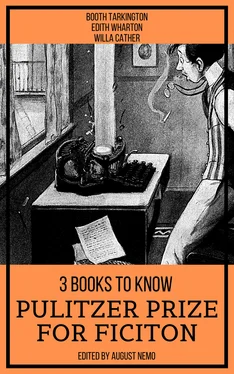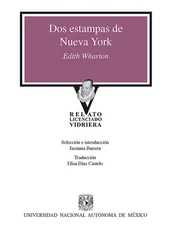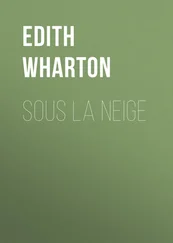“George!”
“Oh, yes,” he said. “Life's most ingenious: it's got a special walloping for every mother's son of 'em!”
“Maybe,” said Isabel, troubled—“maybe some of the mothers can take the walloping for them.”
“Not one!” her brother assured her, with emphasis. “Not any more than she can take on her own face the lines that are bound to come on her son's. I suppose you know that all these young faces have got to get lines on 'em?”
“Maybe they won't,” she said, smiling wistfully. “Maybe times will change, and nobody will have to wear lines.”
“Times have changed like that for only one person that I know,” Eugene said. And as Isabel looked inquiring, he laughed, and she saw that she was the “only one person.” His implication was justified, moreover, and she knew it. She blushed charmingly.
“Which is it puts the lines on the faces?” Amberson asked. “Is it age or trouble? Of course we can't decide that wisdom does it—we must be polite to Isabel.”
“I'll tell you what puts the lines there,” Eugene said. “Age puts some, and trouble puts some, and work puts some, but the deepest are carved by lack of faith. The serenest brow is the one that believes the most.”
“In what?” Isabel asked gently.
“In everything!”
She looked at him inquiringly, and he laughed as he had a moment before, when she looked at him that way. “Oh, yes, you do!” he said.
She continued to look at him inquiringly a moment or two longer, and there was an unconscious earnestness in her glance, something trustful as well as inquiring, as if she knew that whatever he meant it was all right. Then her eyes drooped thoughtfully, and she seemed to address some inquiries to herself. She looked up suddenly. “Why, I believe,” she said, in a tone of surprise, “I believe I do!”
And at that both men laughed. “Isabel!” her brother exclaimed. “You're a foolish person! There are times when you look exactly fourteen years old!”
But this reminded her of her real affair in that part of the world. “Good gracious!” she said. “Where have the children got to? We must take Lucy pretty soon, so that George can go and sit with the Class. We must catch up with them.”
She took her brother's arm, and the three moved on, looking about them in the crowd.
“Curious,” Amberson remarked, as they did not immediately discover the young people they sought. “Even in such a concourse one would think we couldn't fail to see the proprietor.”
“Several hundred proprietors today,” Eugene suggested.
“No; they're only proprietors of the university,” said George's uncle. “We're looking for the proprietor of the universe.”
“There he is!” cried Isabel fondly, not minding this satire at all. “And doesn't he look it!”
Her escorts were still laughing at her when they joined the proprietor of the universe and his pretty friend, and though both Amberson and Eugene declined to explain the cause of their mirth, even upon Lucy's urgent request, the portents of the day were amiable, and the five made a happy party—that is to say, four of them made a happy audience for the fifth, and the mood of this fifth was gracious and cheerful.
George took no conspicuous part in either the academic or the social celebrations of his class; he seemed to regard both sets of exercises with a tolerant amusement, his own “crowd” “not going in much for either of those sorts of things,” as he explained to Lucy. What his crowd had gone in for remained ambiguous; some negligent testimony indicating that, except for an astonishing reliability which they all seemed to have attained in matters relating to musical comedy, they had not gone in for anything. Certainly the question one of them put to Lucy, in response to investigations of hers, seemed to point that way: “Don't you think,” he said, “really, don't you think that being things is rather better than doing things?”
He said “rahthuh bettuh” for “rather better,” and seemed to do it deliberately, with perfect knowledge of what he was doing. Later, Lucy mocked him to George, and George refused to smile: he somewhat inclined to such pronunciations, himself. This inclination was one of the things that he had acquired in the four years.
What else he had acquired, it might have puzzled him to state, had anybody asked him and required a direct reply within a reasonable space of time. He had learned how to pass examinations by “cramming”; that is, in three or four days and nights he could get into his head enough of a selected fragment of some scientific or philosophical or literary or linguistic subject to reply plausibly to six questions out of ten. He could retain the information necessary for such a feat just long enough to give a successful performance; then it would evaporate utterly from his brain, and leave him undisturbed. George, like his “crowd,” not only preferred “being things” to “doing things,” but had contented himself with four years of “being things” as a preparation for going on “being things.” And when Lucy rather shyly pressed him for his friend's probable definition of the “things” it seemed so superior and beautiful to be, George raised his eyebrows slightly, meaning that she should have understood without explanation; but he did explain: “Oh, family and all that—being a gentleman, I suppose.”
Lucy gave the horizon a long look, but offered no comment.
“Aunt Fanny doesn't look much better,” George said to his mother, a few minutes after their arrival, on the night they got home. He stood with a towel in her doorway, concluding some sketchy ablutions before going downstairs to a supper which Fanny was hastily preparing for them. Isabel had not telegraphed; Fanny was taken by surprise when they drove up in a station cab at eleven o'clock; and George instantly demanded “a little decent food.” (Some criticisms of his had publicly disturbed the composure of the dining-car steward four hours previously.) “I never saw anybody take things so hard as she seems to,” he observed, his voice muffled by the towel. “Doesn't she get over it at all? I thought she'd feel better when we turned over the insurance to her—gave it to her absolutely, without any strings to it. She looks about a thousand years old!”
“She looks quite girlish, sometimes, though,” his mother said.
“Has she looked that way much since father—”
“Not so much,” Isabel said thoughtfully. “But she will, as times goes on.”
“Time'll have to hurry, then, it seems to me,” George observed, returning to his own room.
When they went down to the dining room, he pronounced acceptable the salmon salad, cold beef, cheese, and cake which Fanny made ready for them without disturbing the servants. The journey had fatigued Isabel, she ate nothing, but sat to observe with tired pleasure the manifestations of her son's appetite, meanwhile giving her sister-in-law a brief summary of the events of commencement. But presently she kissed them both good-night—taking care to kiss George lightly upon the side of his head, so as not to disturb his eating—and left aunt and nephew alone together.
“It never was becoming to her to look pale,” Fanny said absently, a few moments after Isabel's departure.
“Wha'd you say, Aunt Fanny?”
“Nothing. I suppose your mother's been being pretty gay? Going a lot?”
“How could she?” George asked cheerfully. “In mourning, of course all she could do was just sit around and look on. That's all Lucy could do either, for the matter of that.”
“I suppose so,” his aunt assented. “How did Lucy get home?”
George regarded her with astonishment. “Why, on the train with the rest of us, of course.”
Читать дальше












